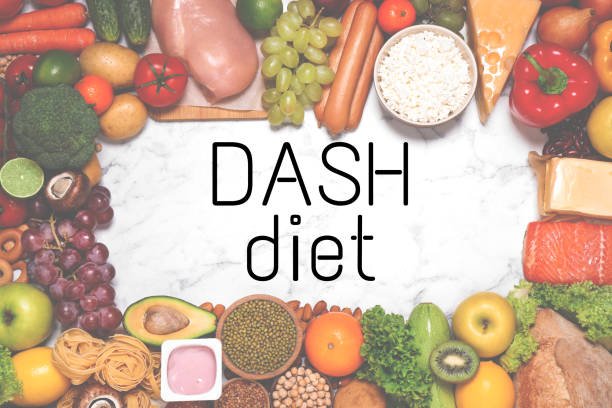
Ingredients for the healthy foods selection. The concept of healthy food set up on dark stone background.
Embarking on a journey towards a healthier lifestyle often involves navigating through various diet plans, and the Atkins Diet stands out as a popular choice. However, for individuals with heart concerns, the safety of such diets becomes a paramount consideration. In this comprehensive guide, we will explore the safety aspects of the Atkins Diet for those with heart conditions, shedding light on its potential benefits and caveats.
Is Atkins Diet Safe for Heart Patients
In this comprehensive guide, we will explore the safety aspects of the Atkins Diet for those with heart conditions, shedding light on its potential benefits and caveats.
II. Understanding the Atkins Diet
A. Atkins Diet Overview
The Atkins Diet is a low-carbohydrate diet that aims to promote weight loss by restricting the intake of carbohydrates. Instead, it emphasizes protein and fat consumption to induce a state of ketosis, where the body burns fat for fuel.
B. Phases of Atkins Diet
The Atkins Diet consists of four phases: Induction, Balancing, Pre-Maintenance, and Maintenance. Each phase gradually reintroduces carbohydrates, allowing for a personalized approach to weight loss and maintenance.
III. Assessing the Safety for Heart Patients
A. Impact of Atkins Diet on Heart Health
Research on the effects of low-carbohydrate diets, including Atkins, on heart health has generated varied results. While some studies suggest improvements in cardiovascular risk factors, others raise concerns about potential risks.
B. Monitoring Nutrient Intake
One key consideration for heart patients on the Atkins Diet is ensuring adequate nutrient intake. Balancing macronutrients and micronutrients becomes crucial to maintain overall health and address specific heart-related concerns.
IV. The Role of Fats in Atkins Diet and Heart Health
A. Differentiating Healthy and Unhealthy Fats
The Atkins Diet often involves a higher intake of fats, leading to questions about the impact on heart health. Understanding the distinction between healthy fats (unsaturated fats) and unhealthy fats (saturated and trans fats) is essential.
B. Research Insights
We’ll delve into studies that explore the effects of fat consumption in low-carbohydrate diets on cholesterol levels and overall cardiovascular health, providing a nuanced perspective.
V. Managing Ketosis and Heart Health
A. Ketosis Overview
As a central aspect of the Atkins Diet, ketosis involves the body burning stored fat for energy. We’ll discuss the implications of ketosis for heart patients and how it aligns with cardiovascular health.
B. Medical Supervision
For individuals with heart conditions, medical supervision becomes crucial when considering diets that induce ketosis. Consulting healthcare professionals ensures personalized guidance and monitoring.
VI. Real Stories: Case Studies and Testimonials
A. Positive Experiences
Highlighting positive experiences of individuals with heart conditions who have successfully followed the Atkins Diet can offer insights into its potential benefits.
B. Cautionary Tales
Acknowledging cases where individuals faced challenges or adverse effects on heart health while on the Atkins Diet adds a layer of realism, emphasizing the need for personalized approaches.
VII. Expert Opinions: What Cardiologists Say
A. Advantages and Risks
Cardiologists play a pivotal role in assessing the safety of the Atkins Diet for heart patients. We’ll explore expert opinions on the potential advantages and risks, providing a well-rounded view.
B. Individualized Recommendations
Cardiologists often stress the importance of personalized dietary recommendations. We’ll discuss how tailoring the Atkins Diet to individual health needs can enhance safety.
VIII. Navigating Challenges and Misconceptions
A. Common Misconceptions
Addressing common misconceptions about the Atkins Diet and its impact on heart health is crucial for making informed decisions.
B. Lifestyle Factors
Considering lifestyle factors, such as exercise and stress management, alongside the Atkins Diet is vital for overall heart health. We’ll explore the interconnectedness of these elements.
The Atkins Diet: A Low-Carbohydrate Approach to Weight Loss and Health
The Atkins Diet is a well-known low-carbohydrate diet that has been popular for decades. It was developed by Dr. Robert C. Atkins and is designed to promote weight loss and improve overall health by restricting carbohydrate intake. This diet has evolved over the years and has various phases, with the primary focus being on reducing carbohydrates and increasing the consumption of proteins and fats. In this article, we will explore the principles, key components, potential benefits, and considerations associated with the Atkins Diet.
Principles of the Atkins Diet
The Atkins Diet is built on several core principles that guide its dietary approach:
1. Carbohydrate Restriction:
The primary principle of the Atkins Diet is the significant reduction of carbohydrates in the diet. The goal is to minimize the intake of foods like bread, pasta, rice, and sugary items.
2. Phases:
The diet is typically divided into phases, with each phase gradually reintroducing carbohydrates in controlled amounts. The initial phase, called the Induction Phase, is the most restrictive and focuses on jump-starting weight loss.
3. Protein and Fat Emphasis:
The diet places a strong emphasis on protein and healthy fats. Protein sources like meat, fish, and poultry, along with fats from sources like avocados, nuts, and oils, are encouraged.
4. Reduced Sugar Intake:
Sugars, particularly refined sugars, are minimized in the diet, and sugary foods and beverages are discouraged.
5. Individualized Carbohydrate Tolerance:
The diet recognizes that individuals have different carbohydrate tolerances, so it encourages finding the right carbohydrate intake level for each person.
6. Regular Monitoring:
Those on the Atkins Diet are encouraged to monitor their food intake, carbohydrate counts, and overall progress throughout the diet’s various phases.
Key Components of the Atkins Diet
The Atkins Diet primarily consists of the following key components:
1. Four Phases:
Induction Phase: The initial phase is the most restrictive, with a carbohydrate intake of around 20-25 grams per day. This phase focuses on shifting the body into a state of ketosis, where it relies on stored fat for energy.
Balancing Phase: Carbohydrate intake increases slightly in this phase, with the addition of more nuts, seeds, and low-carb vegetables.
Pre-Maintenance Phase: In this phase, individuals continue to increase their carbohydrate intake while closely monitoring their progress and carbohydrate tolerance.
Maintenance Phase: The final phase allows for a broader range of carbohydrate intake while maintaining weight and health goals.
2. Low-Carbohydrate Foods:
The diet encourages the consumption of low-carb foods, including non-starchy vegetables, lean proteins, and healthy fats.
3. Protein Sources:
Proteins like meat, poultry, fish, and tofu are central to the Atkins Diet, providing satiety and nutrition.
4. Healthy Fats:
Healthy fats from sources like avocados, nuts, seeds, and olive oil are important for providing energy and promoting feelings of fullness.
5. Limited Carbohydrate Foods:
High-carb foods like bread, pasta, rice, sugar, and starchy vegetables are restricted or reduced in the diet.
6. Monitoring:
Regular tracking of food intake and carbohydrate counts is encouraged, particularly in the initial phases.
Benefits of the Atkins Diet
The Atkins Diet offers several potential benefits, although individual experiences may vary:
1. Weight Loss:
One of the primary benefits associated with the Atkins Diet is its effectiveness in promoting weight loss. By reducing carbohydrate intake, the body shifts into a state of ketosis, using stored fat for energy and leading to weight loss.
2. Improved Blood Sugar Control:
The diet may help regulate blood sugar levels, particularly for individuals with type 2 diabetes or those at risk of developing the condition. The reduction in carbohydrate intake can lead to better glycemic control.
3. Enhanced Satiety:
The high protein and fat content of the Atkins Diet can lead to reduced appetite and feelings of fullness, making it easier for some people to adhere to a calorie deficit for weight loss.
4. Better Heart Health:
Although controversial, the Atkins Diet may improve heart health markers such as blood pressure, triglycerides, and HDL cholesterol levels.
5. Potential Therapeutic Benefits:
The Atkins Diet has been explored as a therapeutic tool for epilepsy and neurodegenerative diseases, and some studies suggest it may have potential benefits in these areas.
6. Individualization:
The Atkins Diet recognizes that individuals have different carbohydrate tolerances, allowing for a degree of personalization.
Challenges and Considerations
While the Atkins Diet offers numerous benefits, it also presents challenges and considerations:
1. Nutritional Balance:
Critics argue that the diet can be nutritionally unbalanced, as it restricts or limits several food groups and can potentially lead to nutrient deficiencies.
2. Keto Flu:
When transitioning into ketosis, some individuals experience symptoms known as the “keto flu,” which may include headaches, fatigue, and nausea.
3. Social and Lifestyle Challenges:
Staying in ketosis and adhering to the diet can be challenging in social settings, and it may require extra effort to find low-carb options when dining out.
4. Long-Term Sustainability:
Some individuals find it challenging to maintain the strict carbohydrate restriction required for the Atkins Diet over the long term.
5. Personalization:
The diet may need to be tailored to an individual’s specific needs and preferences, as strict adherence may not be suitable for everyone.
#Conclusion
The is a well-established low-carbohydrate dietary plan that aims to promote weight loss and better health by restricting carbohydrate intake and increasing the consumption of proteins and fats. While it has been associated with several potential benefits, it’s important to approach the diet with consideration of potential challenges, individual goals, and dietary preferences. Consulting with a healthcare professional or registered dietitian can provide valuable guidance and personalized recommendations for adopting and maintaining the Atkins Diet in a way that aligns with your unique needs and health goals.







Your article helped me a lot, is there any more related content? Thanks!